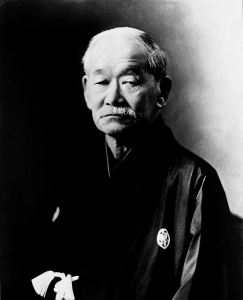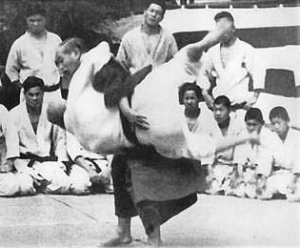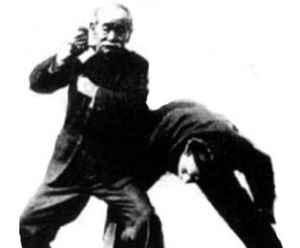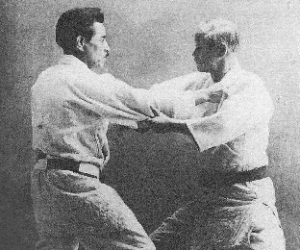
Ju-do, translated as “gentle way’ is a Japanese martial art, founded by Jigoro Kano in 1882. Judo combines throwing techniques (nage-waza) and ground techniques (katame-waza).
Kano’s vision for Judo revolved around the principles of ‘Maximum efficiency, minimum effort’ and ‘Softness controlling hardness’.
In short, resisting a more powerful opponent will result in your defeat, whilst adjusting to and evading your opponent’s attack will cause them to lose their balance, their power will be reduced, and you will defeat them. These principles, coupled with a concentration on execucting the techniques correctly rather than using strength, make it possible for weaker opponents to beat significantly stronger ones.
Kano was adamant that Judo be possible to practise realisitically and safely. As such, dangerous techniques were abandoned and all students are taught ‘Ukemi’ (break falls) in order that they can thorw and be thrown without injuring or being injured.
Judo was to serve not only as a way of self defense but as guidng philosiphy in life. Kano believed that students that studied and perfected the techniques of Judo, whilst abiding by it’s rules and principles, could achieve betterment in all other aspects of their everyday lives.
Judo would go on to be adopted as an Olympic sport in 1964 and is now practiced by millions around the world in over 200 nations.



BENEFITS OF JUDO.
SELF AWARENESS
Seeing their child excited about learning is something all parents strive to achieve. Judo is mentally and physically stimulating in a productive learning environment. By learning to synchronise their mind with their body, children become very aware of themselves and others.
CONCENTRATION & FOCUS
When participating in a Judo class, a student needs to remain focused so as not to injure themselves or their classmates. Whilst appearing to be just a bunch of students wrestling and play fighting, Judo actually teaches about balance, force production and bio-mechanics without them even realising.
SELF DEFENCE
Though we hate to think of children being in a violent setting, there is a chance they may possibly be put in such a situation. Judo does not teach weapons fighting or even striking (punches and kicks) however they learn to grapple and control an opponent to defend long enough for a chance to run away unscathed.
ETHICAL COMPETITION
Judo competitions are quite different from other ‘fights’. The process involves bowing to your opponent and the referee; these are acknowledgements of your opponent’s willingness to engage you in a bout and the referee’s position in control of the fight. The compulsory bowing and handshake upon completion of the fight means sportsmanship is paramount.
EXERCISE
A typical judo class will often be comprised of a warm-up, teaching and practising of moves and possibly some fighting. The warm up and practice account for most of the class and for that time, your child will be constantly on the go. The workout each child gets will not only assist in the natural development of his or her muscles, but also help them build stronger cardio-vascular systems.